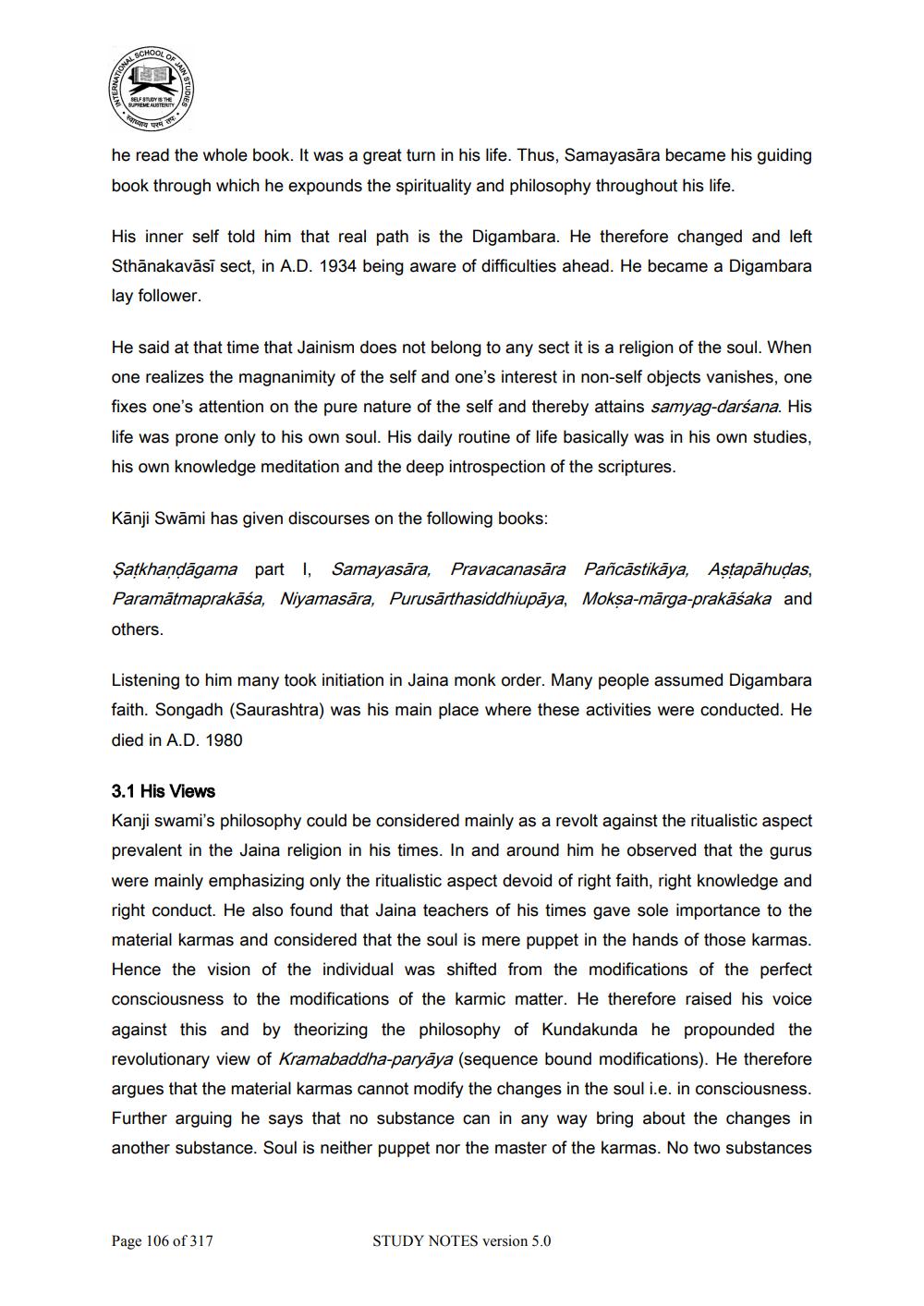________________
he read the whole book. It was a great turn in his life. Thus, Samayasāra became his guiding book through which he expounds the spirituality and philosophy throughout his life.
His inner self told him that real path is the Digambara. He therefore changed and left Sthānakavāsi sect, in A.D. 1934 being aware of difficulties ahead. He became a Digambara lay follower.
He said at that time that Jainism does not belong to any sect it is a religion of the soul. When one realizes the magnanimity of the self and one's interest in non-self objects vanishes, one fixes one's attention on the pure nature of the self and thereby attains samyag-darśana. His life was prone only to his own soul. His daily routine of life basically was in his own studies, his own knowledge meditation and the deep introspection of the scriptures.
Kānji Swāmi has given discourses on the following books:
Satkhandāgama part I, Samayasāra, Pravacanasāra Pañcāstikāya, Astapāhudas, Paramātmaprakāśa, Niyamasāra, Purusārthasiddhiupāya, Mokşa-mārga-prakāśaka and others.
Listening to him many took initiation in Jaina monk order. Many people assumed Digambara faith. Songadh (Saurashtra) was his main place where these activities were conducted. He died in A.D. 1980
3.1 His Views Kanji swami's philosophy could be considered mainly as a revolt against the ritualistic aspect prevalent in the Jaina religion in his times. In and around him he observed that the gurus were mainly emphasizing only the ritualistic aspect devoid of right faith, right knowledge and right conduct. He also found that Jaina teachers of his times gave sole importance to the material karmas and considered that the soul is mere puppet in the hands of those karmas. Hence the vision of the individual was shifted from the modifications of the perfect consciousness to the modifications of the karmic matter. He therefore raised his voice against this and by theorizing the philosophy of Kundakunda he propounded the revolutionary view of Kramabaddha-paryāya (sequence bound modifications). He therefore argues that the material karmas cannot modify the changes in the soul i.e. in consciousness. Further arguing he says that no substance can in any way bring about the changes in another substance. Soul is neither puppet nor the master of the karmas. No two substances
Page 106 of 317
STUDY NOTES version 5.0




